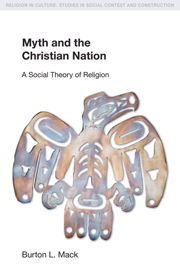Introduction
Summary
Thinking about religion in the United States soon runs into the problem of its definition. The popular conception, taken for granted by most people, is that religion is a private matter, a special kind of personal experience. This is sometimes said to be contact with a spiritual realm of reality, sometimes expressed as an encounter with the spirit or power of God, and sometimes experienced as a personal transformation. Studies of religion defined in this way tend toward psychologies of religion, and there are many self-help guides to spiritual wholeness that regard religion mainly as a matter of personal experience. This way of thinking about religion accords with our focus on persons as individuals. It is this concept of religion as a private and personal matter that has made it possible to think of the United States as a “Christian nation” even while concurring with the doctrine of the separation of church and state.
A second definition of religion regards it as an institution devoted to the representation of the spiritual realm in the human world. This has often been called “organized religion,” referring to churches, temples, mosques, and their programs. Religious institutions are usually distinguished in terms of their belief systems, tenets, and ritual practices. Most Americans have no trouble thinking of religion both as a personal experience and as an organization, for the purpose of the organization is understood to enable and enhance the religious experiences of its members.
- Type
- Chapter
- Information
- Myth and the Christian NationA Social Theory of Religion, pp. 1 - 14Publisher: Acumen PublishingPrint publication year: 2008

